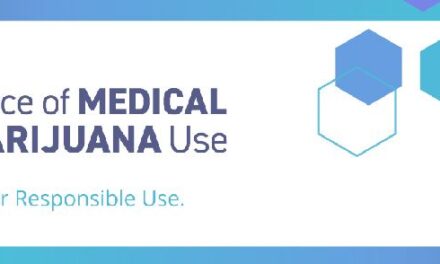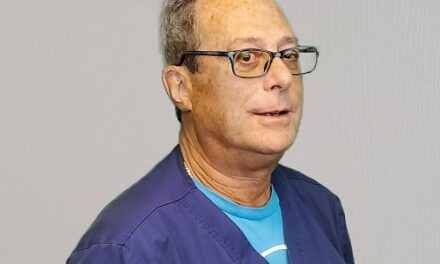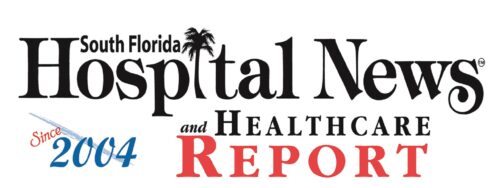Florida Medical Marijuana Physicians Group (FMMPG)
Legislative Priority Statement
Talking Points for the Provisions of the FMMPG Compassionate Care Clarification Bill Which Amends s. 381.986 Medical Use of Marijuana
1. Defining “Telehealth”
The definition proposed in the bill is consistent with the statutory definition in s. 456.47, with the addition of allowing audio-only telephone calls if audiovisual technology has been attempted and fails, which can happen for technical reasons with any patient, and because of a lack of technological knowledge with senior citizens. There was an unsuccessful attempt to amend 456.47 (SB 700) which would have lowered the standard for telehealth technology by allowing e-mails and FAX’s to be considered “telehealth”. Florida medical cannabis specialists feel that a higher standard of communications—real-time two-way communication between a physician and patient—is needed for effective doctor-patient communications and want to maintain that standard for medical cannabis recertification visits, which is why it is being codified in s. 381.986.
2. Adding an additional Qualifying Medical Condition: “A chronic medical condition for which the patient has taken opioids or benzodiazepines”
Opiates (prescribed for pain) and benzodiazepines (prescribed for anxiety and insomnia) both reduce a person’s drive to breathe. That’s why overdoses of these substances can result in death. Cannabis does not reduce the drive to breathe, which is why no one has ever died from a cannabis overdose. In addition, these medications cause a physical addiction. Cannabis used in medical doses does not.
Florida, as well as rest of the country, is working to reduce the legal and illegal use of these substances. Cannabis is very effective for pain, anxiety and insomnia, and even for helping patients decrease, and in many cases completely discontinue using these medications to which they have become addicted. A review article published in July 2020 which looked at the results of nine studies showed “There was a 64-75% reduction in opioid dosage when used in combination with medical cannabis.” Florida’s medical cannabis specialists’ practices have also seen a reduction in opioid dosage, with many patients being able to discontinue opioids completely. Florida’s opioid dispensing rate per 100 in 2016 (before the medical marijuana program was established) was 66.6. It went down to 45.4 in 2019 (the most recent year for which the CDC published data).
3. Requiring qualified physicians to provide clinical education about medical marijuana to patients for whom they issue a certification
Currently, physicians in Florida who are approved to certify patients to use medical marijuana are not required to have any clinical knowledge of cannabis medicine, nor are they required to educate the patients they certify about how to use medical cannabis properly. The only requirement is that a qualified physician have knowledge of the administrative rules of the statute, which is the subject matter in the mandated course and test which physicians are required to complete to become qualified to certify patients for medical marijuana use.
Most patients have either no knowledge or experience with medical cannabis use, or only recreational knowledge or experience. How are they to know how to properly use cannabis for medical treatment if they are not educated, especially if the physician certifying them to use medical cannabis may not possess that knowledge. Medical Marijuana Treatment Centers are not required to have certified medical cannabis educators or to provide education.
For a physician to certify a patient to use medical marijuana without providing education about the proper dose, means of administration, and frequency of administration, would be like a physician certifying that a patient has diabetes and leaving it to the patient to figure out if they should use insulin or tablets or both, and what strength, and how often to administer the medication. That is not acceptable medical practice and certifying patients to use medical marijuana without education about how to use it properly, and possibly not even having the knowledge to do so, is not acceptable medical practice either.
4. Permitting a telehealth encounter for recertification of a physician’s existing patient
Telehealth has been a means to provide and receive healthcare for decades. Its use increased exponentially as a result of the COVID-19 pandemic. It proved to be an effective and efficient means to provide and receive medical care for many medical conditions, including during the 15 months it was used for recertification evaluations of medical marijuana patients, which focuses primarily on the patient’s history rather than on their physical examination. However, the authority to perform and receive medical marijuana recertification evaluations via telehealth expired with the expiration of the Governor’s Executive Order 20-52 on June 26, 2021.
Medicare and almost all private insurers have recognized the value of telehealth and continue to permit it as a means to provide and receive medical care. No payors, including the state of Florida, pay for medical cannabis services, therefore payment authorization for telehealth recertification visits is not at issue. Because the vast majority of other patients are permitted to receive their healthcare via telehealth, so should medical cannabis patients who require recertification. And especially since a significant number of medical cannabis patients have mobility issues due to severe pain, Multiple Sclerosis, Parkinson’s Disease, Amyotrophic Lateral Sclerosis or other physically debilitating conditions, or may be immunosuppressed and at risk of infection due to cancer or may have severe anxiety when they have to leave their home due to PTSD, it is even more important that medical marijuana patients be able to receive their recertification evaluations via telehealth.
The eligibility criteria for medical marijuana recertification via telehealth is exactly the same as those established by the state Surgeon General in Emergency Order DOH No. 20-002: Telehealth may be used for recertification visits only (not for initial certification visits), and may only be used if the patient has previously been certified (seen in person) by the qualified physician.
5. Waiving the fee for issuance and renewal of Registry identification cards for honorably discharged military veterans
Most military veterans who seek medical cannabis certification are doing so for debilitating physical or emotional injuries they sustained in the line of duty. Even if their medical condition is not service-related, they have served our country and made sacrifices that very few other Floridians have. Certain other state initial and renewal fees are waived by the state of Florida for honorably discharged veterans by the Florida Department of Agriculture and Consumer Services. Out of state tuition fees are waived at state universities, colleges and career centers. Military veterans who have served our country honorably also deserve to have the $75 annual fee waived for the issuance and renewal of their OMMU Registry identification card.
6. Establishing employment protection parity for medical marijuana patients with patients taking other prescription medications
When taken medically, medical cannabis causes less sedation than opiates such as Vicodin or Percocet, less than benzodiazepines such as Ativan or Xanax, and even less than over the counter antihistamines such as Benadryl. If employees are permitted to take those medications, they should be permitted to take medical cannabis. The employment protection provisions would still protect employers who could lose a monetary or licensing-related benefit under federal law or federal regulations. It also does not restrict an employer from taking adverse employment action against an employee who is impaired by marijuana on the job, just as they are able to take adverse employment action against an employee who is impaired by any prescription medication, alcohol or any other substance.
7. Establishing reciprocity for visiting out of state qualifying patients and caregivers
Medical marijuana is medication. For many people it is the only medication they take. Florida attracted over 130 million tourists in 2019. In addition, a lot of people come to Florida to visit relatives. These people need to be able to get their medication. And if they can’t, they are less likely to visit Florida.
At least 7 other states recognize medical cannabis certifications issued by other states and permit these patients to purchase medical cannabis products in their state. Florida statute has a provision for people from out of state who reside in Florida for 31 consecutive days (Seasonal Residents) to become certified to obtain medical cannabis, but not for people who visit for 30 days or less.
The proposed reciprocity provision would utilize the current procedure of patients being entered into the OMMU Registry by a qualified physician. Having an unexpired medical cannabis certification from another state would be their qualifying condition for Florida. This could be done in advance of their visit via telehealth so that the OMMU could process their application before the visitor arrives in Florida. The visiting qualifying patient would be subject to the same dosing limit as Florida residents, prorated for their 30-day visiting patient certification period.










